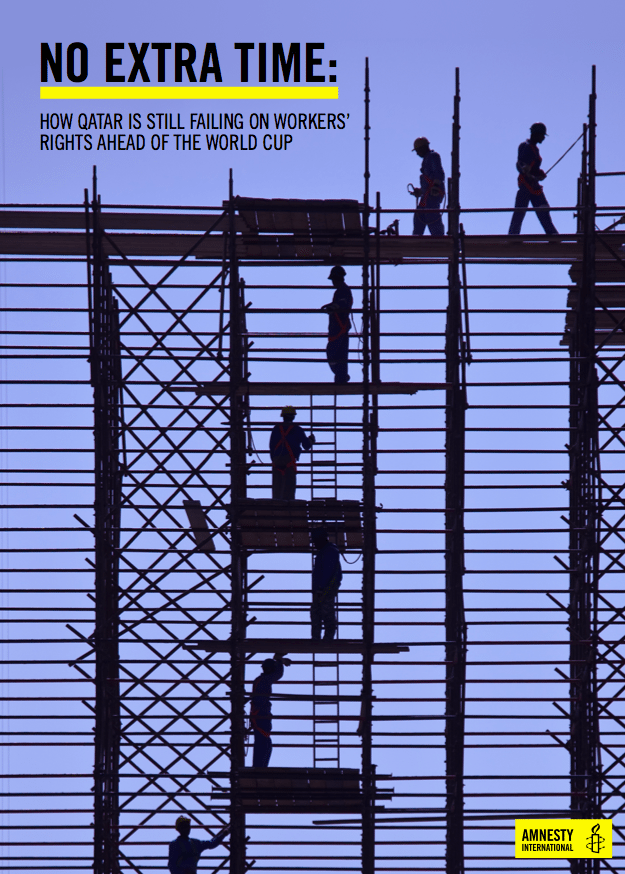For over a year Qatar has been subjected to intense international scrutiny on workers’ rights. The widespread exploitation of migrant workers in the country has been exposed through investigations by Amnesty International, Human Rights Watch, the Guardian, trade unions, and the United Nations, among others. The grim realities for migrant workers hired to construct infrastructure and provide services in one of the world’s wealthiest countries was laid bare – and ultimately recognized by the Qatari government.
Qatar’s hosting of the 2022 FIFA World Cup helped highlight the abuses, with the issue being discussed in the European parliament, FIFA executive committee meetings and by the International Labour Organization.
Since late 2013, the spotlight has been thrown onto the systems that facilitate and sustain abuses; most notably the sponsorship, or kafala, system that ties workers to their employers and puts them at risk of forced labour. The sponsorship system includes the notorious exit permit – a blatant human rights violation that can leave exploited migrants stranded and unable to leave the country – often for many months.
The pressure has been on Qatar’s government and World Cup organizers – under fire already over corruption allegations – to show the world that the competition could be held without exploiting the hundreds of thousands of workers who would be needed to construct the infrastructure that will serve it.

